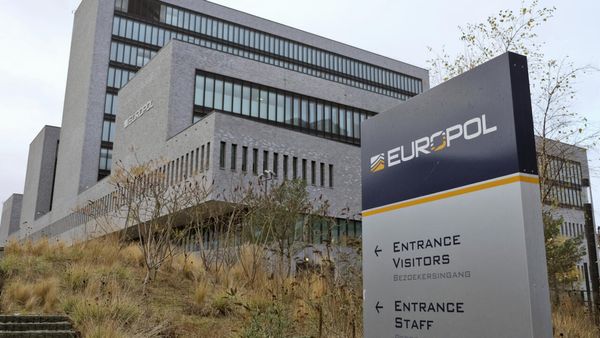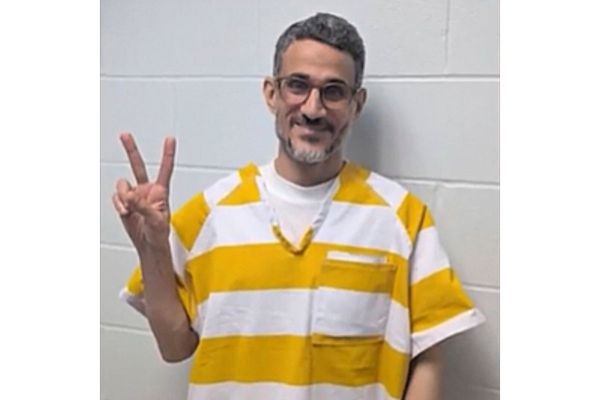
The former British government expert who identified several possible disposal sites for the body of Peter Falconio says he believes further searches have a “reasonably high” chance of locating the murdered backpacker’s body.
Dr Mark Harrison was the UK’s national police search adviser in the early 2000s and is considered a world-leading consultant in “no-body” homicide cases. He is referred to by the US FBI as “doctor search” and has been involved in high-profile cases including the searches for Madeline McCann, Daniel Morecambe and William Tyrell.
Harrison became involved in attempts to locate Falconio at the request of the Northern Territory police in 2006, not long after Bradley John Murdoch was convicted of the backpacker’s outback murder.
Murdoch, 67, died of throat cancer on Tuesday. He never confessed to the crime, or spoke about where he left Falconio’s body.
Harrison says he produced two separate search strategy reports – paid for by the British government – for the Northern Territory police operation Taskforce Regulus, dated 2007 and 2008, which narrowed the possible disposal sites for Falconio down to five likely locations.
Harrison said he was not aware whether the search strategy he proposed was ever followed; he said the recommendations required international expertise and specialist equipment beyond the typical capacity of Australian policing agencies at the time.
“I was requested by assistant commissioner Graham Kelly in 2006 to review the police searches for the body of Peter Falconio and advise on what, if any, further searches could reasonably be conducted,” Harrison told the Guardian.
“I then undertook, with a team of experts, a detailed review of the case and search records and produced a report over 70 pages in length. I then travelled to Australia in 2008 and spent two weeks in and around the crime scene with my team and the NT police.”
He says the report states in detail where and how further searches could be undertaken, and what specialist “experts, assets and techniques” would be required.
Guardian Australia understands the NT police revisited Harrison’s report about a decade ago, and that there had been some “excitement” at the time about a breakthrough in the case, but it is unclear whether new searches took place or if the report’s recommendations had been followed. The NT police did not respond to questions.
Harrison says further searches would still have “a reasonably high” chance of locating Falconio’s remains. He said technological and forensic advances during the past 15 years, combined with the availability of specialist search techniques, meant more could be done.
He said he believes the 2007 and 2008 reports are still the best information for authorities to use to find Falconio.
“All those locations are grounded in the intelligence that we have: the statements of evidence and forensics that were collected by the NT police; the behavioural, geographical and geological profiling by my team; and that each site has been physically visited in daytime and night-time and assessed for its body disposal attributes,” Harrison said.
“I consider the NT police have worked tirelessly to locate the remains of victim Peter Falconio and I would very much welcome the opportunity to discuss with them the search strategy report I completed for them in 2008 and how further search activity might be undertaken.”
‘He would never confess’
Harrison is a specialist in geo-forensics – the “science of search” – which combines policing and law-enforcement profiling techniques with geological ones. He is also a former head of forensic services and intelligence for the Australian Federal Police, and is the only person to have a PhD in and international casework experience on no-body homicide.
He says he has worked on more than 300 such cases and recently helped the FBI develop its own specialist search capabilities.
Harrison says he is not critical of the Northern Territory police, and that policing agencies typically do not have the highly specialised expertise or equipment required to conduct such searches. He recounts cases where a body was located in an area that had previously been searched repeatedly.
Much of the Northern Territory’s recent efforts to locate Falconio’s remains had been premised on the idea that a confession by Murdoch – who maintained his innocence until his death – or some other information might reveal the burial site.
Those efforts included “destabilisation” tactics to prevent Murdoch from settling in prison; “no body, no parole” laws that would have denied him release without information leading to the discovery of Falconio’s remains; and most recently the announcement of a $500,000 reward for new information.
Harrison says it was unlikely that Murdoch – even if he had confessed – could have led police to the disposal site.
“Some may believe that because Northern Territory is vast then ipso facto it’s really difficult to find people. The belief is that people will exploit that vastness to hide bodies but body disposal doesn’t work that way.
“The idea was that they could shortcut that and get a confession and then X marks the spot.
“But again the behavioural profile that we provided to them was that he would never confess, would never give you the location … but in addition we further added that it’s highly unlikely that he would be able to give you the location, because it was a functionary disposal.
“So this is where our understanding of human behaviour and the volume of cases and research that the British police and FBI have on ‘body disposal’ can be applied.
“These were used along with a detailed behavioural profile of Murdoch to identify likely body disposal areas he would have chosen following this unplanned homicide, even if he was on amphetamines and drug affected, as his focus wasn’t on disposing a body to come back to.”
Harrison also says he is unsure whether Falconio’s family was aware of his search strategy reports, though it would be standard practice in the cases he reviews.







